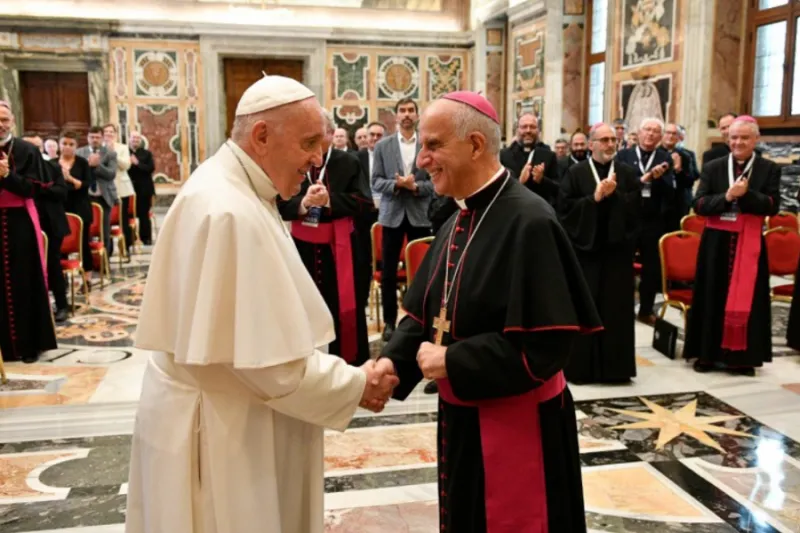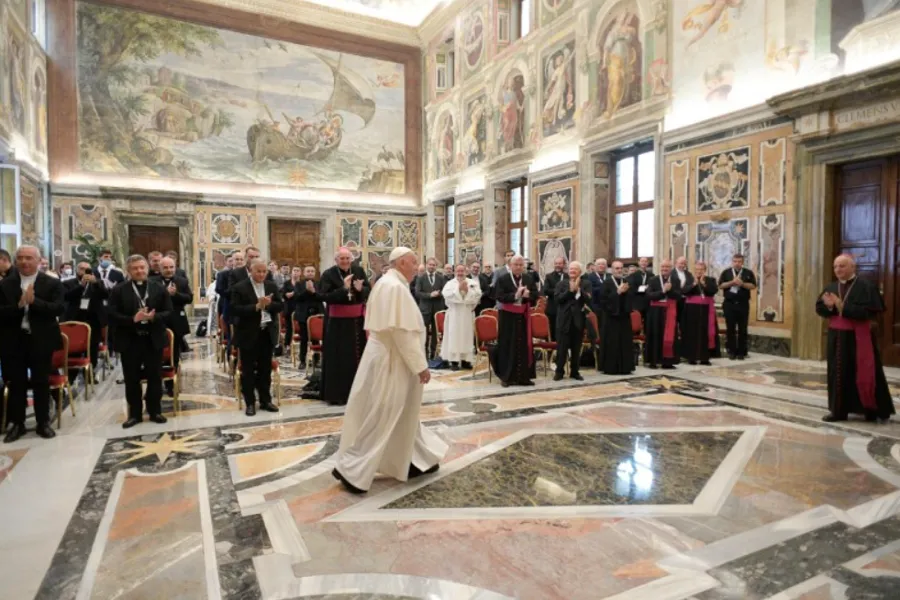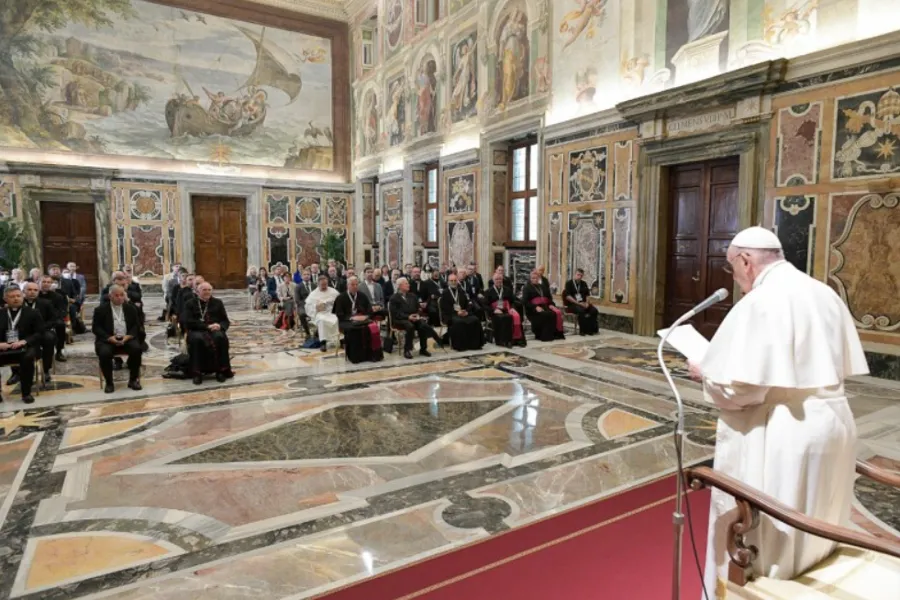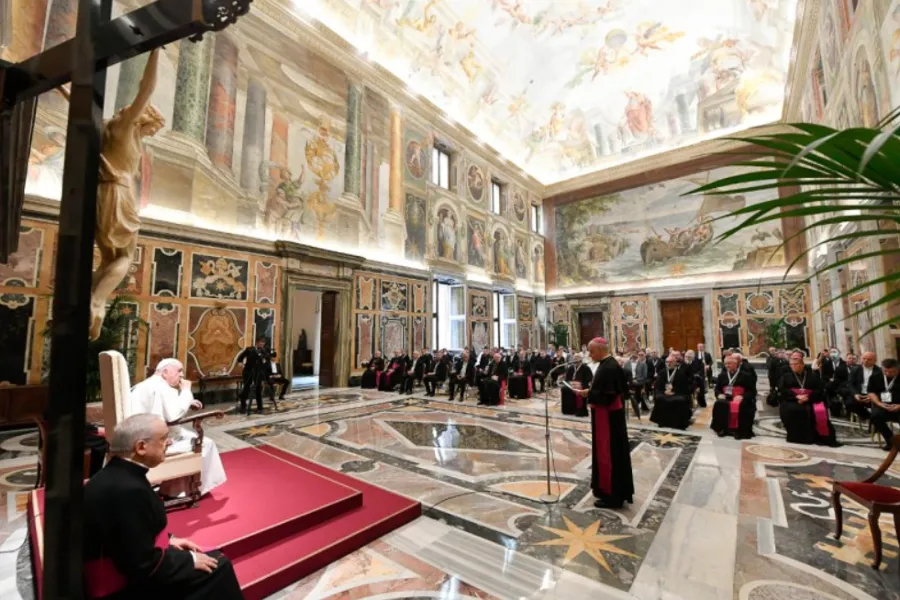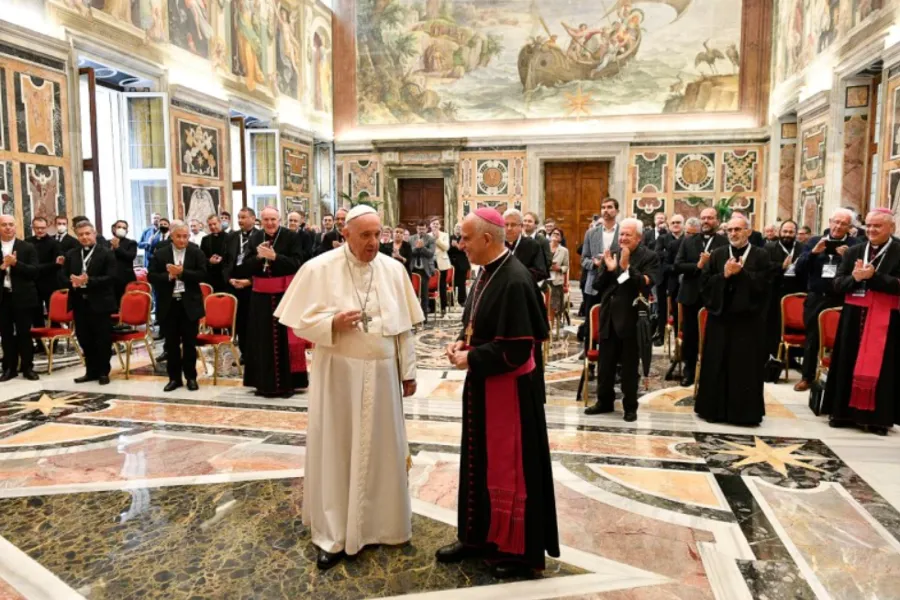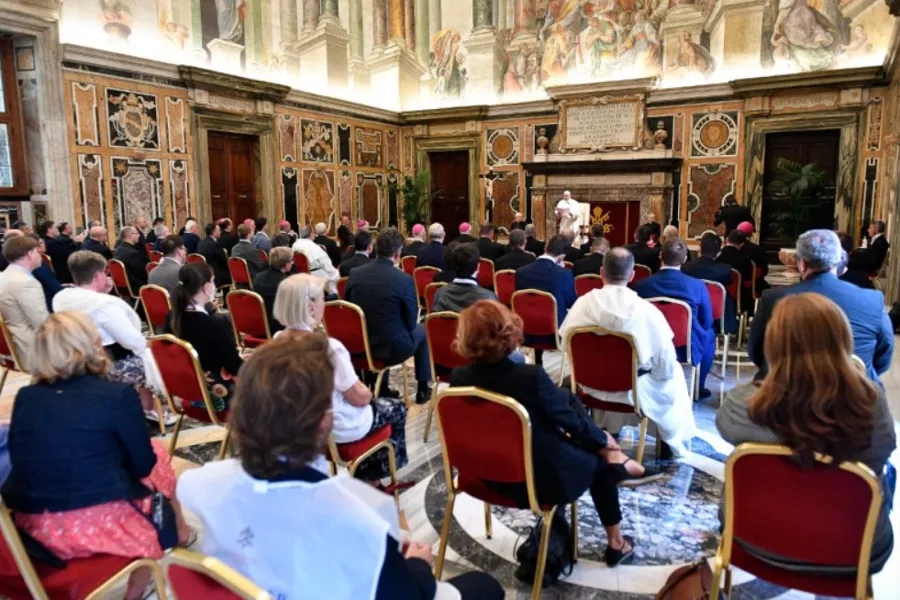
Pope Francis confers lay ministries upon ten people in St. Peter’s Basilica
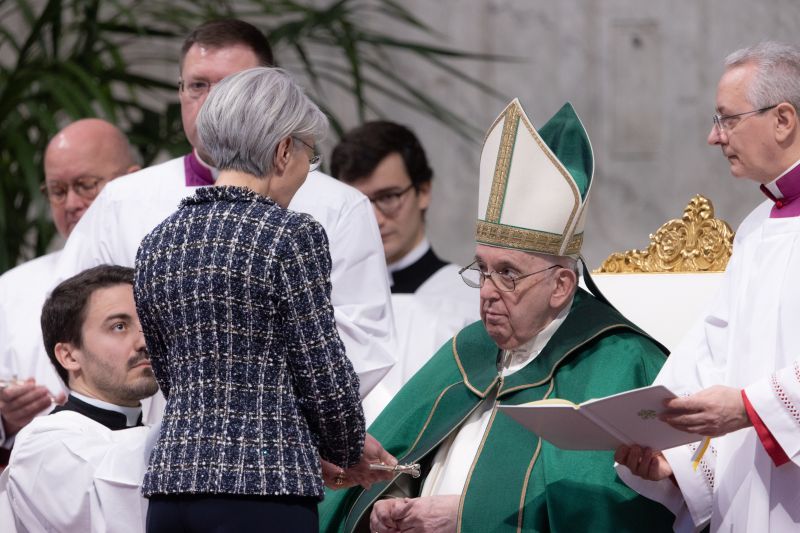 Pope Francis confers the ministry of catechist in St. Peter’s Basilica on Jan. 22, 2023. / Daniel Ibanez/CNA
Pope Francis confers the ministry of catechist in St. Peter’s Basilica on Jan. 22, 2023. / Daniel Ibanez/CNA
Vatican City, Jan 22, 2023 / 04:30 am (CNA).
Pope Francis formally conferred the ministries of lector and catechist upon four men and six women from the Philippines, Mexico, Congo, Italy, and the U.K. on Sunday at a Mass in St. Peter’s Basilica.
Celebrating the Sunday of the Word of God on Jan. 22, the pope presented Bibles to three new lectors and said: “Receive the book of Holy Scripture and faithfully transmit the Word of God, so that it may germinate and bear fruit in the hearts of men.”
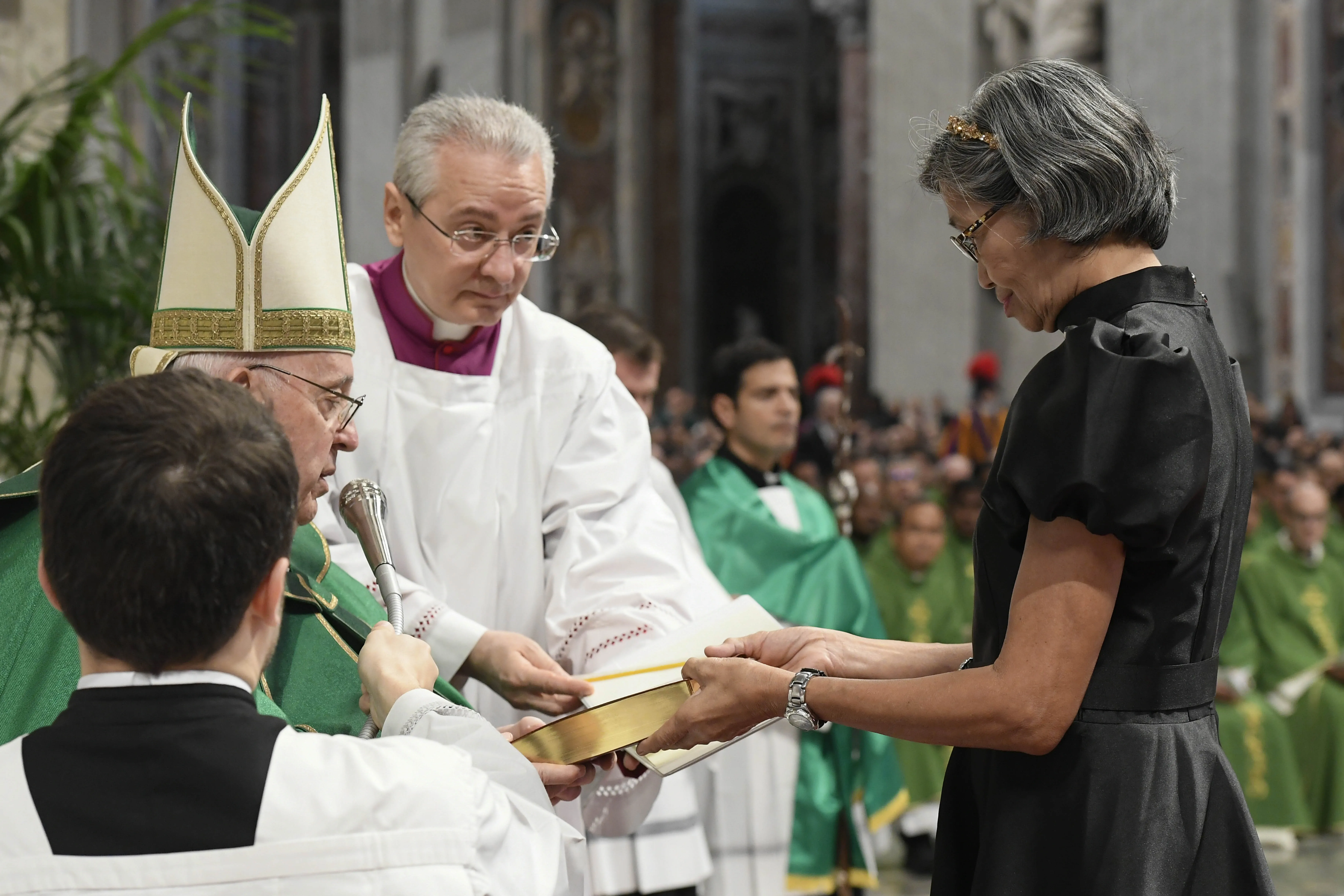
The pope then spoke to the future catechists who knelt before him. He handed each one a silver crucifix, saying: “Receive this sign of our faith, seat of the truth and charity of Christ: proclaim him by your life, actions, and word.”
Pope Francis conferred the lay ministries on the Sunday of the Word of God, a day that he declared in 2019 on the 1,600th anniversary of the death of St. Jerome, who famously translated the Bible.
The ministries themselves have also been shaped by Pope Francis in recent years. The pope changed Church law in January 2021 so that women could be formally instituted to the lay ministries of lector and acolyte.
Pope Francis established the ministry of catechist as an instituted, vocational service within the Catholic Church in May 2021.
The ministry is for lay people who have a particular call to serve the Catholic Church as a teacher of the faith. The ministry lasts for the entirety of life, regardless of whether the person is actively carrying out that activity during every part of his or her life.
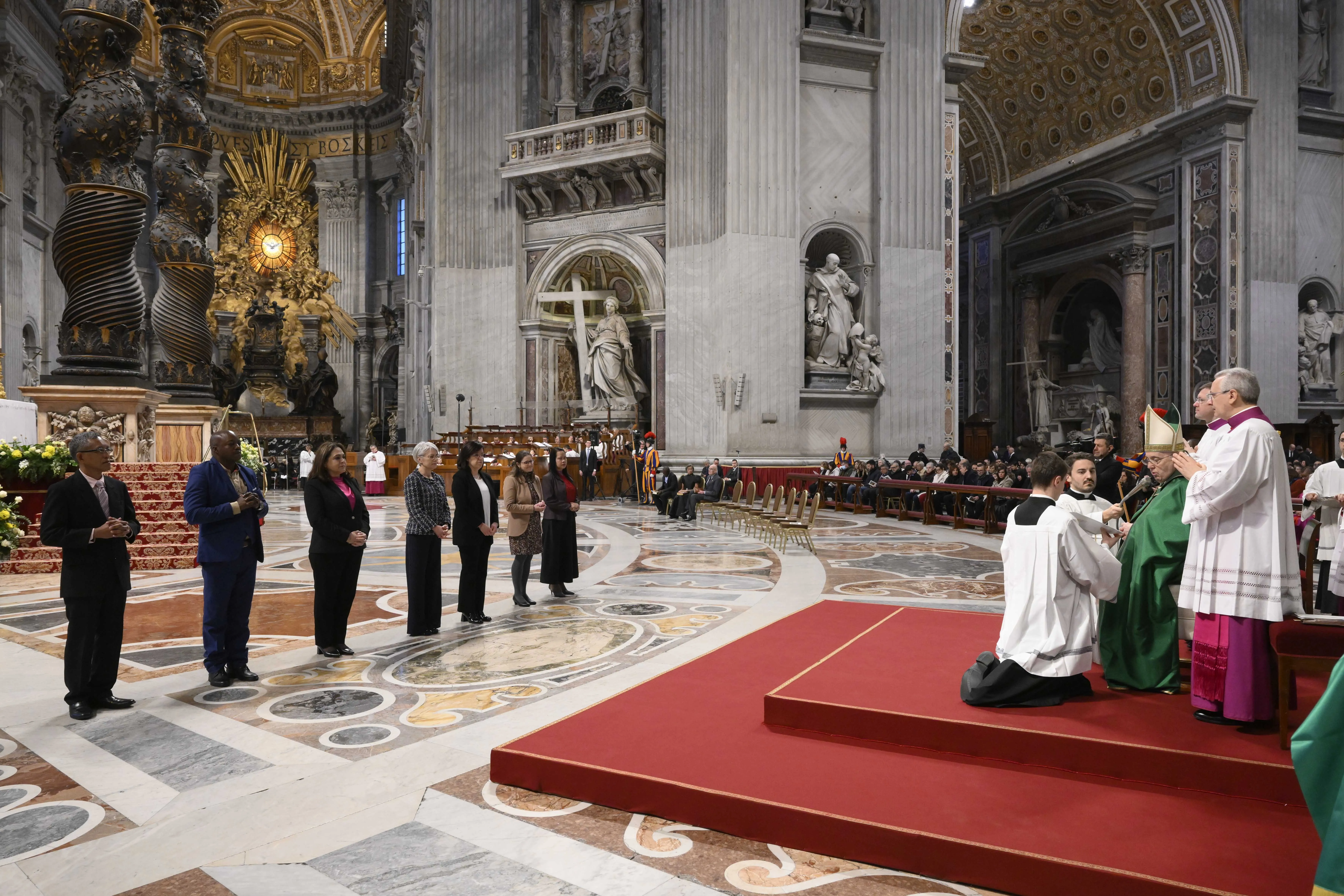
In his homily, Pope Francis said that “the Word of God is for everyone.” He underlined that the Word “calls everyone to conversion” and “leads us to direct our lives to the Lord.”
“All of us, even the pastors of the Church, are under the authority of the Word of God. Not under our own tastes, tendencies, and preferences, but under the one Word of God that molds us, converts us, and calls us to be united in the one Church of Christ,” Pope Francis said.
The pope said that the “proclamation of the Word must become the main priority of the ecclesial community, as it was for Jesus.”
“May it not happen that we profess a God with an expansive heart, yet become a Church with a closed heart … may it not be that we preach salvation for all, yet make the way to receive it impractical; may it not be that we recognize that we are called to proclaim the Kingdom, yet neglect the Word, losing ourselves in so many secondary activities or so many secondary discussions,” he said.
More than 5,000 people attended the Mass for the Sunday of the Word of God in St. Peter’s Basilica, according to the Vatican.
The Sunday of the Word of God has been celebrated in the Church each year on the third Sunday of Ordinary Time since 2020.
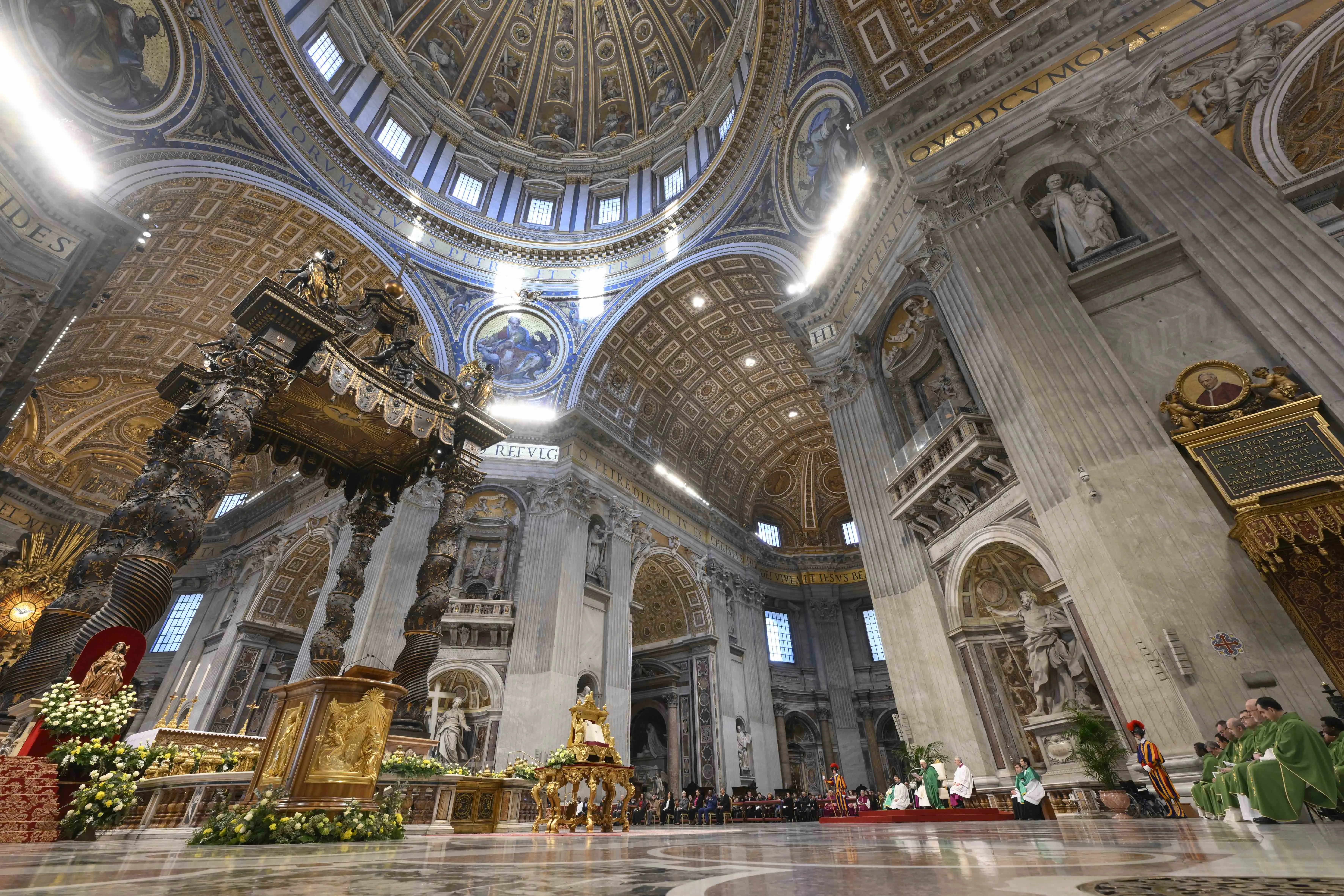
Pope Francis said that the Word of God “draws us into the ‘net’ of the Father’s love and makes us apostles moved by an unquenchable desire to bring all those we encounter into the barque of the Kingdom.”
“Today let us also hear the invitation to be fishers of men: let us feel that we are called by Jesus in person to proclaim his Word, to bear witness to it in everyday life, to live it in justice and charity, to “give it flesh” by tenderly caring for those who suffer,” he said.
“This is our mission: to become seekers of the lost, oppressed, and discouraged, not to bring them ourselves, but the consolation of the Word, the disruptive proclamation of God that transforms life, to bring the joy of knowing that He is our Father and addresses each one of us, to bring the beauty of saying, ‘Brother, sister, God has come close to you, listen and you will find in his Word an amazing gift!’”


